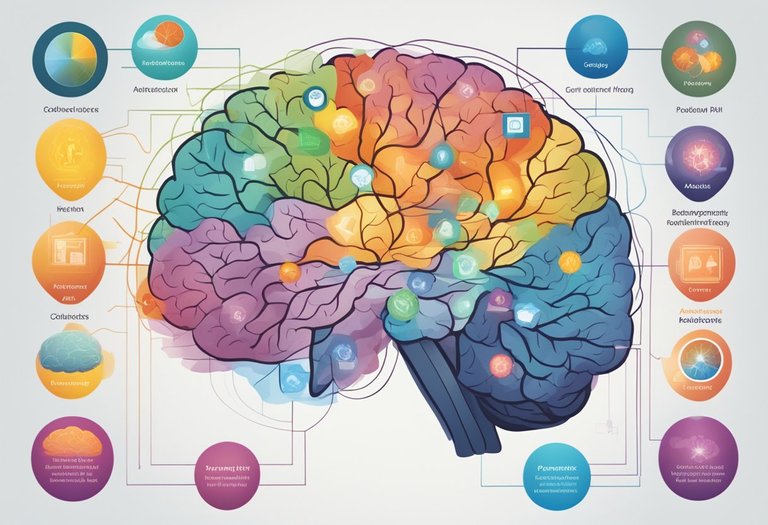ADHD, or Attention Deficit Hyperactivity Disorder, is often associated with children and adolescents, but it can also affect adults. ADHD is a neurological condition that affects a person's ability to focus, stay organized, and control impulses. While the symptoms of ADHD can vary from person to person, they can have a significant impact on daily life.

In adults, the symptoms of ADHD can manifest in different ways than in children. For example, hyperactivity may be less noticeable, while difficulty with organization and time management may be more prominent. Other symptoms may include forgetfulness, impulsivity, and difficulty with relationships and communication. It's important to note that ADHD is a real and treatable condition, and seeking professional help can make a significant difference in managing symptoms and improving quality of life.
Understanding ADHD

ADHD, or Attention Deficit Hyperactivity Disorder, is a neurodevelopmental disorder that affects both children and adults. It is characterized by symptoms of inattention, hyperactivity, and impulsivity.
In adults, the symptoms of ADHD can be different from those in children. Adults with ADHD may have trouble with organization, time management, and completing tasks. They may also have difficulty with relationships, employment, and financial management.
The exact cause of ADHD is not known, but research suggests that it may be related to genetic and environmental factors. There is no cure for ADHD, but there are treatments available that can help manage the symptoms.
Treatment for ADHD may include medication, therapy, or a combination of both. Medications such as stimulants and non-stimulants can help improve focus and reduce impulsivity. Therapy, such as cognitive-behavioral therapy, can help individuals with ADHD develop coping strategies and improve their social skills.
It is important to note that not all individuals with ADHD require treatment. Some people with ADHD are able to manage their symptoms without medication or therapy. However, for those who do require treatment, it is important to work with a healthcare professional to develop a personalized treatment plan.
Identifying Symptoms of ADHD in Adults

As someone who has researched ADHD extensively, I have found that it can be difficult to identify symptoms of ADHD in adults. While many people associate ADHD with hyperactivity and impulsivity, these symptoms are not always present in adults with ADHD. In fact, many adults with ADHD may not even realize that they have the condition.
Cognitive Symptoms
One of the most common symptoms of ADHD in adults is difficulty with executive function. This can manifest in a number of ways, including:
- Difficulty with time management and organization
- Procrastination and difficulty getting started on tasks
- Forgetfulness and absent-mindedness
- Difficulty with multitasking and switching between tasks
Emotional Symptoms
ADHD can also have a significant impact on emotional regulation. Some common emotional symptoms of ADHD in adults include:
- Impulsivity and difficulty controlling emotions
- Mood swings and irritability
- Low frustration tolerance
- Difficulty coping with stress and anxiety
Physical Symptoms
While ADHD is primarily a cognitive and emotional condition, it can also have physical symptoms. Some physical symptoms of ADHD in adults include:
- Restlessness and difficulty sitting still
- Difficulty sleeping and insomnia
- Fatigue and low energy levels
- Excessive fidgeting and movement
Overall, identifying symptoms of ADHD in adults can be challenging, but it is important for individuals to seek out a diagnosis and treatment if they suspect that they may have the condition.
Diagnosing ADHD in Adults
As an adult with ADHD, it can be challenging to diagnose the disorder. ADHD symptoms are often mistaken for other mental health conditions, such as anxiety or depression, which can lead to a misdiagnosis.
To diagnose ADHD in adults, a healthcare professional will typically conduct a comprehensive evaluation, which may include a physical exam, a psychological evaluation, and a review of the patient's medical history.
During the evaluation, the healthcare professional will ask the patient about their symptoms, including how long they have been experiencing them and how they impact their daily life. They may also ask about the patient's family history of ADHD or other mental health conditions.
In addition to the evaluation, the healthcare professional may also use rating scales or checklists to assess the patient's symptoms. These tools can help determine the severity of the symptoms and whether they meet the criteria for an ADHD diagnosis.
It is important to note that there is no single test that can definitively diagnose ADHD in adults. Instead, the diagnosis is based on a combination of factors, including the patient's symptoms, medical history, and evaluation results.
If an ADHD diagnosis is made, there are several treatment options available, including medication, therapy, and lifestyle changes. It is essential to work with a healthcare professional to determine the best course of treatment for each individual patient.
Living with ADHD as an Adult
Living with ADHD as an adult can be challenging, but it is possible to manage the condition with the right strategies and support. As someone who has been diagnosed with ADHD, I have found that the following tips have helped me to cope with the symptoms:
Establishing routines: Having a consistent routine can be helpful in managing symptoms of ADHD. This can include setting aside specific times for work, exercise, and relaxation.
Breaking tasks into smaller steps: Large tasks can be overwhelming for individuals with ADHD. Breaking them down into smaller, more manageable steps can make them easier to tackle.
Using reminders: Forgetting important tasks or appointments is a common symptom of ADHD. Using reminders, such as alarms on a phone or sticky notes, can help to keep track of important information.
Prioritizing tasks: Prioritizing tasks can help to ensure that important tasks are completed first. This can help to reduce stress and prevent procrastination.
Seeking support: Support from family, friends, or a therapist can be helpful in managing symptoms of ADHD. It can also be beneficial to connect with others who have ADHD to share experiences and strategies.
In addition to these strategies, there are various treatments available for ADHD, including medication and therapy. It is important to work with a healthcare professional to determine the best course of treatment for your individual needs.
Overall, living with ADHD as an adult can be challenging, but with the right strategies and support, it is possible to manage the condition and lead a fulfilling life.
Great post! I'll soon have to take tests to evaluate if I have ADHD or not and this was a great read.
I've always thought I had it but now I'll be sure.
I was diagnosed in adulthood and it explains a looooot